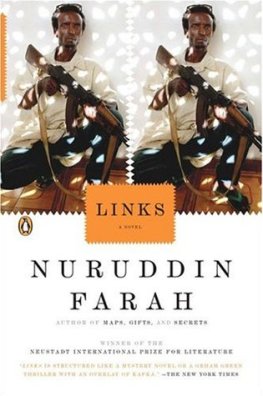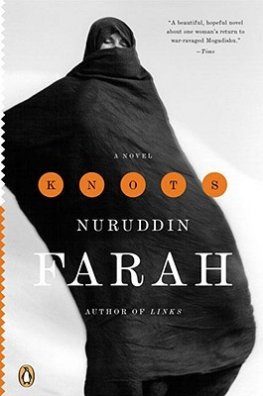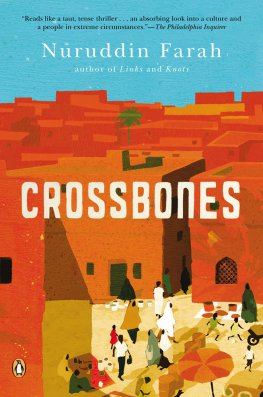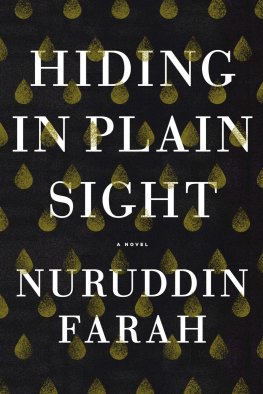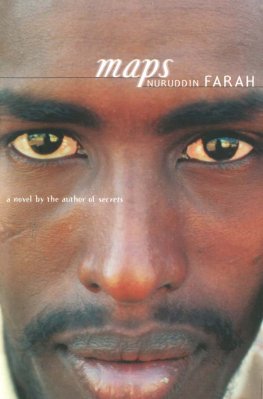FOR ABYAN, KAAHIYE, AND MINA,
WITH ALL MY LOVE
If you dont want to be a monster, youve got to be like your fellow creatures, in conformity with the species, the image of your relations. Or else have progeny that make you the first link in the chain of a new species. For monsters do not reproduce.
MICHEL TOURNIER
The individual leads in actual fact a double life, one in which he is an end to himself and another in which he is a link in a chain which he serves against his will or at least independently of his will.
SIGMUND FREUD
A dog starved at his masters gate
Predicts the ruin of the state!
WILLIAM BLAKE
THROUGH ME THE WAY INTO THE SUFFERING CITY,
THROUGH ME THE WAY TO THE ETERNAL PAIN,
THROUGH ME THE WAY THAT RUNS AMONG THE LOST.
For we have reached the place
where you will see the miserable people,
those who have lost the good of the intellect.
(CANTO III)
Your accent makes it clear that you belong
among the natives of the noble city.. .
My guide his hands encouraging and quick
thrust me between the sepulchers toward him,
saying Who were your ancestors?
(CANTO X)
They said he was a liar and father of lies.
(CANTO XXIII)
DANTE, Inferno

GUNS LACK THE BODY OF HUMAN TRUTHS!
Barely had his feet touched the ground in Mogadiscio, soon after landing at a sandy airstrip to the north of the city in a twin-engine plane from Nairobi, when Jeebleh heard a man make this curious statement. He felt rather flatfooted in the way he moved away from the man, who followed him. Jeebleh watched the passengers pushing one another to retrieve their baggage lined up on the dusty floor under the wings of the aircraft. Such was the chaos that fierce arguments erupted between passengers and several of the men offering their services as porters, men whom Jeebleh would not trust. Who were these loiterers? He knew that Somalis were of the habit of throwing despedida parties to bid their departing dear ones farewell, and of joyously and noisily welcoming them in droves at airports and bus depots when they returned from a trip. However, the loiterers gathered here looked as though they were unemployed, and were out to get what they could, through fair or foul means. He wouldnt put it past those who were armed to stage a stickup, or to shoot in order to get what they were after. He was in great discomfort that the Antonov had landed not at the citys main airport retaken by a warlord after the hasty departure of the U.S. Marines but at a desolate airstrip, recently reclaimed from the surrounding no-mans-land between the sand dunes and low desert shrubs, and the sea.
Jeebleh observed that after retrieving their baggage, the passengers congregated around the entrance to a lean-to shed, pushing, shoving, and engaged in acrimonious dispute. A minute later, he worked out that the shack was Immigration, when he saw some of the passengers handing over their passports, and the men inside receiving the documents and disappearing. If the lean-to was the place to have his passport stamped, who, then, were the men inside, since they had no uniforms? What authority did they represent, given that Somalia had had no central government for several years now, after the collapse of the military regime that had run the country to total ruin?
Turning because the man spoke again, repeating his remark about guns Jeebleh saw the strangers late-afternoon shadow, and decided that he and the man had never met before. If they had, he would have remembered, because this man boasted a mouth that wasnt much of a mouth, with a pair of lips that appeared tucked away, virtually invisible. He was very tall and unnaturally thin. Jeebleh couldnt help wondering to himself whether the man hadnt been looking after himself in the style to which he had once been accustomed, or whether he had always been thin. But seeing his dignified posture and the way he carried himself, Jeebleh couldnt imagine how anyone could survive and prosper in the conditions of Mogadiscio, described to Jeebleh by Somalis in the know as cloak-and-dagger, man-eat-man politics. The man was probably educated, and perhaps had held a high position during the former brutal dictatorial regime, whose popular overthrow had led to the ongoing strife. Or he may have been a well-regarded academic at the National University, now to all intents and purposes defunct.
What do guns lack?
The man repeated, They lack the body of human truths!
Jeebleh thought: There you are! For it was no accident that the first sentence spoken to him by a stranger began with the word guns. This was emblematic of the civil war vocabulary, and times being what they were, he was sure he would have many opportunities to listen to everyones take on guns and related terms.
He looked away, and his gaze fell on two youths with missing limbs, asking passengers and onlookers alike to take them to an outlying shack where they might make telephone calls, or escort them to a depot not far away where they could get transport to the city. He quickly averted his eyes, turning his full attention back to the man. Jeebleh felt weak, and sensed vaguely that something wasnt right.
Everyone calls me Af-Laawe, the man said.
Jeebleh was embarrassed for his lack of manners in not shaking the mans extended hand, and for his own failure to reciprocate and introduce himself.
Af-Laawe continued, You need not bother yourself, because your reputation precedes you. So let me welcome you home, Jeebleh!
The sun moved in a dazzle. And as though in a daze, Jeebleh looked about, certain that at a conscious level he was not sufficiently prepared for the shocks in store for him during this visit, his first to Mogadiscio in more than two decades. He would have to adapt to the new situation. He reminded himself that he had felt a strange impulse to come, after an alarming brush with death. He had nearly been run over by a Somali, new to New York and driving a taxi illegally. He hoped that by coming to Mogadiscio, the city of death, he might disorient death. Meanwhile, he had looked forward to linking up with Bile and, he hoped, meeting his very dear friends niece Raasta, who had lately been abducted.
How do you know who I am?
Im a friend of Biles, the man responded.
How is Bile doing?
It depends on who you talk to.
What do you mean?
Bile has many detractors, people who associate his name with terrible deeds!
Are you one of his detractors?
The question seemed to throw Af-Laawe off balance, and he fell silent. In the meantime, Jeebleh made sure he had his carry-on and his shoulder bag, in which he kept his documents, firmly between his feet. Distrustful of the thin mans motives, he tried a different tack to come to grips with his discomfort about everything since his arrival. Did Bile know I was on this flight? he asked.
Maybe Nairobi rang to alert me.
You speak as though Nairobi were someones name, he said, and waited for Af-Laawe, who was proving hard to pin down.
Af-Laawe was clearly happy to steer the conversation away from Bile. Some of us think of the cities we know very well and where weve lived as intimate friends.
Jeebleh knew what he meant, knew that in moments of great anxiety, one may mistake the self for the world. But he explicitly checked his precautionary measures, pulling his shoulder bag and carry-on onto his body. He had his few clothes in his shoulder bag. On advice from friends in Kenya, where he had spent a couple of days, he had left a bigger suitcase in Nairobi, depositing it at the left luggage of his hotel. He had brought more books than clothes with him to Mogadiscio, assuming that reading material would be more difficult to come by in a city ruled to ruin by gunrunners.

